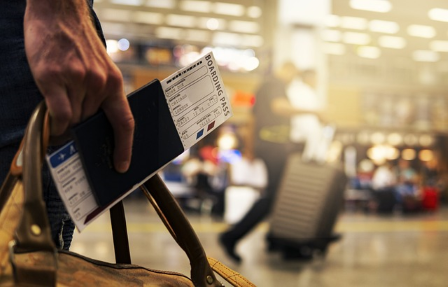How To Move To China With Your Pet: A Step By Step Guide
July 18, 2023
If you're a pet owner planning to move to China, digging through the internet for the right information on how to relocate your dog or cat to China can be time consuming. As experts in international pet relocation, we've decided to share with you everything you should know about moving to China with your pets, to help ease the process.
In this blog, we will answer all your questions related to pet relocation to China, including what the China import policy is like, what dog breeds are banned in China, how much relocating your pet to China would cost, what to expect on arrival, and more.
Let's dig in!
China Pet Import Policy
How many pets are allowed when moving to China?
What pets are allowed when relocating to China?
Banned dog breeds in China
Dog breeds banned in Shanghai
Dog breeds banned in Beijing
Dog breeds banned in Chengdu
How to bring your pet to China
When should I start preparing to relocate my pet to China?
How much does it cost to relocate a pet to China?
How to relocate your pet to China and avoid quarantine
How to bring your pet to China from countries/areas designated as rabies-free
PRC Customs Bureau’s list of designated rabies-free countries/areas
Finding flights to bring a pet to China
Arrival City in China (port of entry)
Pet-friendly airlines
Tips for booking pet-friendly flights to China
Modes of air transport for pets
Tips for checking in at the airport when bringing your pet to China
What to expect on arrival?
Customs clearance for in China
Pet Quarantine in China
Dog registration
Departing from China with Pets
Conclusion
China Pet Import Policy
How many pets are allowed when moving to China?
To bring pets into China, the PRC Customs and Quarantine Bureau (aka, Customs Bureau) allows pet owners to import one pet per passport holder.
What pets are allowed when relocating to China?
According to the China pet import policy, pets are classified as dogs and cats. Animals other than dogs and cats are known as “exotic species” and include rabbits, guinea pigs, hamsters, rats, flying squirrels, hedgehogs, turtles, reptiles, birds, etc., and are classified as agricultural imports. Exotic pets do not qualify for import under regulations for dogs and cats. Pet owners should contact a professional pet relocation company for assistance as the import requirements and documentation may be extensive for exotic pets.
Additionally, a number of dog breeds are banned in certain cities in China. Keep reading below to find out whether your furry friend would be allowed to travel to China.
Banned dog breeds in China
Although China does not ban any dog breeds, bigger cities such as Shanghai, Beijing, and Chengdu have some dog breed restrictions.
Dog breeds banned in Shanghai include
Tibetan Mastiff, Mastiff, Rottweiler, Italian Mastiff, Bordeaux Mastiff, Bull Mastiff, Spanish Mastiff, Caucasian Vcharka, Pyrenean Mastiff, Brazil Rockefeller, Dogo Argentina Mastiff, Danish Broholmer and other breeds or hybrids of Mastiff; Beauceron Wolfdog, Kunming wolfdog, China Dog, German Shepherd Dog, English Bulldog, Old English Bulldog, American Bulldog, Japanese Tosa, Bull Terrier, Doberman.
Dog breeds banned in Beijing include
Mastiff, German Pinscher, St. Bernard, Great Dane, Great Pyrenees, Bernese mountain dog, Rottweiler, Weimaraner, Setters, Afghan hound, Foxhound, Bloodhound, Irish wolfhound, Saluki, Greyhound, Borzoi, Basenji, Australian shepherd, Belgian shepherd, Bouvier des Flandres, Bearded Collie, Scottish shepherd, German shepherd, Old English sheepdog, British bulldog, Chow chow, Dalmatian, Keeshond, Japanese Akita, Newfoundland Sled dog, Bedlington terrier, Bull terrier, Kerry blue terrier.
Dog breeds banned in Chengdu include
Mastiff, Pit Bull Terriers including American Staffordshire Terriers and Staffordshire Bull Terriers, Akita, Dogo Argentino, German Shepherd, Chinese Chongqing, Borzoi, Newfoundland, Cane Corso, Central Asian Shepherd dog, Great Dane, Dog de Bordeaux, Fila Brasileiro, Irish Wolfhound, Caucasian Shepherd, Kunming Wolfdog, Chinese Dog.
As you may have noticed from the list above, most of these banned dog breeds in China are on the larger side. If you're traveling with a large dog to other cities in China, be sure to consult an expert in pet relocation agent such as ICVS for assistance.

How to bring your pet to China
When should I start preparing to relocate my pet to China?
We recommend all pet owners begin preparing pets for import at least 6-8 months in advance of the arrival date in China.
Under current PRC Customs Bureau regulations, pets entering China are quarantined for 30 days upon arrival, unless they are coming from designated rabies-free countries or areas.
Even though the quarantine could be avoided, the waiting time between each step can be lengthy, and planning far enough in advance will save you from stress.
How much does it cost to relocate a pet to China?
Generally, bringing a pet to China may cost anywhere from USD 1,500 to USD 5,000.
Relocation costs may vary widely across countries and areas so please consult with your local veterinarian or Customs Bureau authorities in the country in which you are based.
Additionally, other fees such as flight ticket prices and pet allowance fees will also vary from one airline to another.
How to relocate your pet to China and avoid quarantine
The requirements for pets to meet the PRC pet import quarantine waiver include
Step 1: Microchip insertion with EU ISO 11784/11785 microchip (record of the microchip insertion date or scan date should be provided)
Step 2: Official record of TWO rabies vaccinations after the microchipping date. Most recent rabies vaccination must be within the validity period for import and given at least 30 days before the blood draw date for the rabies antibody titre test.
Step 3: International travel health certificate from your originating country/area endorsed by an official government veterinarian (certificate must be valid within 14 days of arrival date)
Step 4: Official Rabies antibody titre test performed by an OIE laboratory approved by China’s Customs and Quarantine Bureau. Blood draw may be taken on the same day as the second (most recent) rabies vaccination, as long as the second rabies vaccination is given at least 30-days after the first rabies vaccination, and is still valid at the time of blood draw
Only certain OIE laboratories are approved by China to perform the rabies antibody titre test for import.
Please contact ICVS for more information on authorized laboratories and preparing your pet for import to China.
How to bring your pet to China from countries/areas designated as rabies-free
Step 1: Microchip insertion with EU ISO 11784/11785 microchip
Step 2: Official certificate of rabies vaccination after the microchipping date (vaccination must be given at least 30-days before arrival date and not more than 12 months before arrival date)
Step 3: International travel health certificate from your originating country/area endorsed by an official government veterinarian (certificate must be valid within 14 days of arrival date)
Step 4: You must be able to prove that your pet has continuously resided in a rabies free country/area for at least 6-months prior to entering China. This is to verify your pet is originating from a rabies free country/area and not just transiting through that country
Step 5: Rabies antibody titre test is not required if the pet has resided continuously in a designated rabies-free country/area for at least six months before coming to China.
PRC Customs Bureau’s list of designated rabies-free countries/areas
• New Zealand • Australia • Fiji • French Polynesia • Hawaii • Guam • Jamaica • Iceland • the United Kingdom • Ireland • Liechtenstein • Cyprus • Portugal • Sweden • Switzerland • Japan • Singapore • Hong Kong • Macao
Additional vaccines and parasite prevention
All dogs are recommended to be fully vaccinated and up-to-date on canine distemper and kennel cough (bordetella) vaccinations.
All cats are recommended to be fully vaccinated and up-to-date on feline distemper vaccinations.
Dogs and cats should be up-to-date on internal deworming and current on external flea/tick preventives (within 30 days of arrival date).
Finding flights to bring a pet to China
1-Arrival City in China (port of entry)
We strongly recommend flying your pet into Beijing or Shanghai directly as the worst-case scenario is your pet is quarantined for 30-days. Beijing and Shanghai have quarantine kennels. Other cities (e.g., Chongqing, Chengdu, Tianjin, Qingdao, Guangzhou, etc.) do not have quarantine kennels and are not approved ports of entry for dogs and cats requiring quarantine kenneling.
Animals that do not meet quarantine waiver requirements arriving in cities without quarantine kennels will be turned back and in the worst case, the animal may be euthanized if flying back out is not possible.
2-Recommended airlines
Pet-friendly airlines may include:
• United Airlines • Delta • Air Canada • Air France • British Airways • KLM • LOT • Lufthansa • Emirates • Swiss Air • Turkish Airlines • Thai Airways • Singapore Airlines • Air China • ANA • Asiana • Korean Air • Malaysia Airlines
This list is not exhaustive. Pet transport policies may change at any time. Please contact each airline directly to confirm pet transport policies.
3- Tips for booking pet-friendly flights to China
• Book directly with the airline to confirm pet travel spaces
• Intermediate ticket sales agents may not have the latest information for pet transport policy changes, change in aircraft model which may affect pet travel as excess checked baggage, and seasonal policy changes (e.g., summer or winter blackout periods for pets as checked baggage)
• Obtain written confirmation from the airline for your pet’s travel space
• Confirm the size, design, and weight of the pet’s soft-carrier or air crate with the airline directly
• Book the pet transport with one airline all the way through, even if transiting. Code share flights often encounter different pet transport policies among different air carriers which may be conflicting.
4-How do pets travel on the plane?
Pets may enter China as hand-carry baggage into the cabin of airplanes or as excess checked baggage or shipped as unaccompanied live animal air cargo (e.g., manifest air cargo).
Manifest air cargo shipping requires using a registered air cargo agent to book commercial air cargo space with airlines.
Pet transport policies vary from one airline to another, and airfares will also vary widely due to seasonal pricing, spaces available for pet transport, the size of pets and air crates, and manifest air cargo shipping rates. Please consult your airline to confirm directly.
Learn more about the modes of air transport for pets on ICVS’ official WeChat
Please see the information on the ICVS website for Tips For Safe Air Travel With Pets
Tips for checking in at the airport when bringing your pet to China
• Arrive at least 3-4 hours before the flight time (confirm with the airline when you should arrive for pet check-in)
• Checking in with pets will always take longer due to travel document inspection, weighing the carriers/crates and paying excess baggage fees
• Bring an extra dog leash in your backpack or hand-carry bag in case you need to take your dog out of the carrier or have an opportunity to walk your dog one last time before check-in
• Cats traveling in-cabin will need to pass through x-rays at security check. Using a cat harness helps prevent cats from running loose if they are taken out of the soft carrier before going through x-rays
• Prepare payment for your pet as excess hand-carry or checked baggage as required by the airline (e.g., cash, credit card, debit card, online payment apps, etc.). Not all airlines accept all forms of payment.

What to expect on arrival?
1-Customs clearance in China
• Customs Bureau officials must approve your pet for import after arrival
• China Customs Bureau does not require a pet import permit
• Pet owners must bring all original copies of the required vaccination and microchipping certificates, rabies antibody titre test reports and health certificates issued by the authorized veterinarian (or government-designated facility) in your originating country
• You may need to fill out a form after arrival with pet’s vaccination, microchip, and rabies antibody titre test information.
• Once documents are inspected and approved, your pet is cleared to enter China and can leave the arrival terminal
2-Quarantine
• If your pet does not meet the requirements for quarantine waiver, your pet must quarantine for 30 days at the government operated kennels available in Beijing or Shanghai
• If you are not certain that your pet may receive quarantine waiver, please fly into Beijing or Shanghai which have government-operated quarantine kennels
• Officially designated quarantine kennels are not available except in Beijing and Shanghai
• If you fly into other cities and your pet does not qualify for quarantine waiver, you will need to take your pet overseas.
3-Dog registration
• Dogs must be registered at the local Public Security Bureau (police station) that oversees your residential area
• Dog registration renewal must be completed annually at the police station
• Most cities have size restrictions for dogs and may only allow one dog to be registered to each household address
• Policies and enforcement may vary by city
• The local police station that oversees your residential address will have the final say on dog registration requirements and approving dogs for registration
• Beijing dog registration regulations are available on the ICVS website
Cats are not required to be registered upon arrival in China.
Departing from China with Pets:
• You may take your pet out of China if your pet meets PRC Customs Bureau requirements for export
• An international travel health certificate and exit permit from the PRC Customs Bureau is required to export pets
• It is never too early to begin export preparation even if you do not have a departure date or a confirmed destination country
• China is a rabies endemic country so fulfilling requirements for pets traveling overseas may take at least 6-8 months or more, depending on the destination country
• Keep your pet’s vaccinations up to date and unexpired
• China does not recognize 3-year vaccinations from other countries
• Pets must be vaccinated annually at officially designated animal rabies website vaccination hospitals. Please see the ICVS website for more information on officially designated animal rabies vaccination hospitals in China
Click here to register for the ICVS free online information sessions on Departing from China with Pets, hosted every weekend in English and Chinese.
Conclusion
Taking pets with you is very manageable with accurate information, sufficient time, and a budget to cover relocation expenses. It is never too early to prepare your pets for import to China, and having them microchipped, fully vaccinated and up to date on parasite prevention goes a long way in ensuring your pets are departure ready.
About the Guest Author
ICVS or the International Center for Veterinary Services is a full-service international animal hospital. Please contact ICVS for any questions regarding pet import and export to and from China.
International Center for Veterinary Services
北京市朝阳区阜通西大街融科橄榄城上街13-16号
No. 13-16 RongKe GanLan ChengShangJie, FuTong XiDaJie,
WangJing, Chaoyang District, Beijing
Email: reception@ICVSASIA.com
Tel: (010) 8456-1939, 8456-1940
www.ICVSASIA.com
Dialog WeChat: ICVSASIA
Official WeChat: ICVSCHINA (QR code below)
